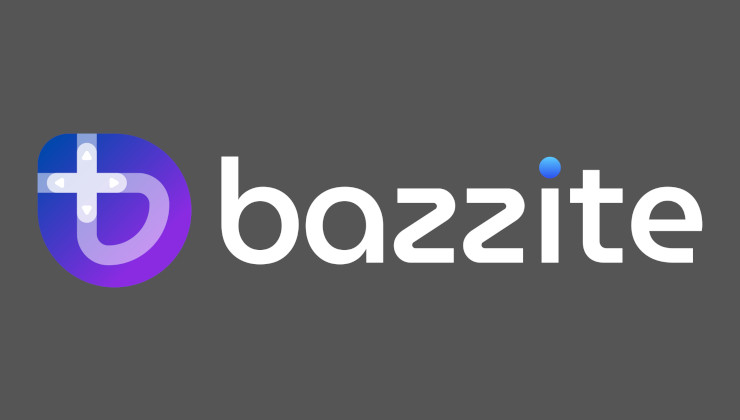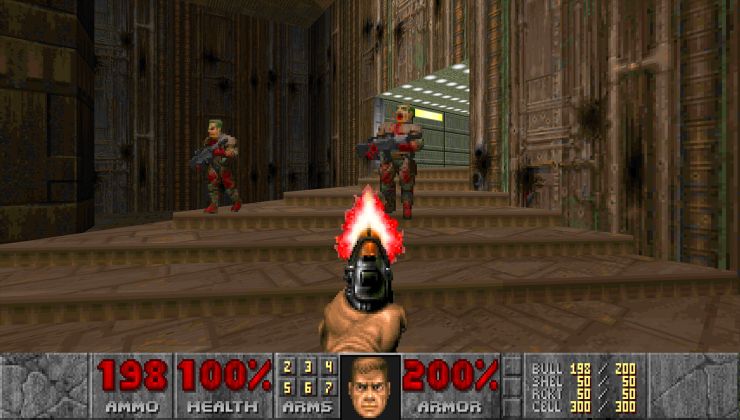Epic and Improbable are taking advantage of Unity with the SpatialOS debacle, seems a little planned
As an update to the ongoing saga between Improbable and Unity in regards to SpatialOS, Epic Games have now jumped in to take advantage of it. To be clear, I don't consider myself biased in any way towards any game engine, especially as I am not a game developer.
As a quick overview of what happened:
- Improbable put out a blog post, claiming Unity overnight blocked SpatialOS and made Unity out to be a real bad company. Improbable then open source their Unity GDK.
- Unity made their own response, mentioning that they told Improbable a year ago about the issues. Let's be real here, revoking the Unity licenses of SpatialOS wouldn't have been a quickly-made decision. Unity have also mentioned repeatedly now about making their TOS (terms of service) a lot clearer.
- Epic Games and Improbable team up to help developers switch game engines.
To assist developers who are left in limbo by the new engine and service incompatibilities that were introduced today, Epic Games and Improbable are together establishing a US $25,000,000 combined fund to help developers transition to more open engines, services, and ecosystems. This funding will come from a variety of sources including Unreal Dev Grants, Improbable developer assistance funds, and Epic Games store funding.
See the full Epic Games blog post here.
I can't help this feeling that Improbable and Epic Games somehow planned this, it feels a little off. To secure a partnership with Epic for rather a lot of money and so quickly, feels like a pretty big PR stunt. Frankly, I feel bad for the folks at Unity as it seems like they've been played here.
Unity does have a lot of issues (especially often on Linux) but this whole situation feels like a made-up farce to make Unity out to be worse than it is. Their terms of service have been pretty poor though, Unity certainly aren't angels and haven't helped themselves.
Again though, this only highlights some of the dangers of using proprietary game engines for your projects. I don't consider myself a zealot in any way towards absolutely preferring open source game engines, especially when closed source alternatives can do a lot of things better, but it should be ringing some alarms bells for developers as a reminder of how they're not really in control.
... help developers transition to more open engines, services, and ecosystems.That “more” is doing some heavy lifting there.
This wouldn't be that Unity is making SpatialOS impossible to use with Unity, only that Impossible, the company is in breach of license.That was my reading of it from the start. Impossible played fast-and-loose with the licence terms, and Unity clarified them. Pretty much a non-story, really.
id Tech, BUILD, and yes, the original Unreal? (GoldSrc only kind of counts since it was Quake/Quake II-based, and I think even Source still inherits some of that)
Oh hey, remember when id Software were awesome and not only released Linux builds of their games, but when the next id Tech engine came out, they quickly moved to open source the previous generation? Which is why we have a bunch of stuff based on everything up to Quake 3-and-a-bit-of-Doom 3/Quake 4?
But nothing after, with all the personnel changes that happened, and, y'know, Bethesda.
I mean, don't get me wrong - going through all the notes for UE4 and there's some amazing work being done there, but yeah - if you don't want to write your own, there's got to be plenty of open source resources out there, or just take a look at Godot, apparently.
Oh, wait, I think I get it - we've had an entire generation of developers trained on Unity and/or Unreal Engine, so they don't know anything else / aren't trained/adaptable. It's the same vendor lock-in that gets us Microsoft Office as 'the only office suite anyone knows' (despite LibreOffice being perfectly fine and awesome), Oracle as 'the only "good" database server', Windows as the only OS the general public knows how to work, and how the little blue 'E' is 'The Internet'. At least that last one is now 'the primary-colour spinny wheel', and 'Facebook' is 'The Internet' for people.
The people who actually care about this stuff already know about the alternatives and are either already using them, moving to them, or at least learning of them and planning their next projects with them in mind. The people who don't care and continue to use proprietary stuff in spite of there being better, open alternatives... don't care. And we can't really make them care. All we can do is keep chugging along in our own parallel universe and ignore what goes on in proprietary-land. ;)
... there was quiet some discussion about xamarin and c# and how epic changed rules
... when returning there (after reading bit about that xamarin stuff) all of it's gone now.
Heh, would say "Epic" fail :/
unreal engine is kind off open source...
i'm not sure about their licence but the code is
"Again though, this only highlights some of the dangers of using proprietary game engines for your projects. "
unreal engine is kind off open source...
i'm not sure about their licence but the code is
Source code being available is not really sufficient at all for this sort of thing and yeah UE4 licensing terms are very far from open source or free software. id Tech 4 is open source, Godot is open source. A bu ch of engines are open source. But none of the major ones(UE4, Unity, CryEngine, Lumberyard, Source, etc) are.
Last edited by Kristian on 11 Jan 2019 at 8:15 pm UTC
They really do try hard to make themselfs hated...
"Again though, this only highlights some of the dangers of using proprietary game engines for your projects. "
unreal engine is kind off open source...
i'm not sure about their licence but the code is
It is source available, not open source. The license is the important part, much more than being able to see the source code: you are signing a contract that severely limits your freedom to use that code, and could come back to bite you in the ass in the future.
Epic is playing dirty right from the beginning with their store. I have avoided commenting about Epic when the news about their store appeared here because I did not want to sound like a Valve fan boy but it should be clear for anyone now that even if their store were to suppor Linux there is nothing will benefit the end user here. What they are doing (Exclusive titles and so on) is utter disgusting IMHO.
I want to sound like a Valve fanboy. Steam is on linux (and itch.io too). GOG is not but why? They support linux tho. Unreal engine is on linux, that's very good. Unity3d is fully supporting linux, too.
Anyways, reading Unity's response I think they are right. Improbable built a platform with unity3d engine without telling anything. Put your SDK on their asset store and they will shut up lol...
fund to help developers transition to more open engines, services, and ecosystems.That's kind of deceitful. Unreal Engine is "source available" proprietary software and Epic could change the terms any time they'd like, just like Unity did. Then again didn't Tim Sweeney also call MS Windows an open ecosystem and then start complaining when he realized it wasn't?
Last edited by Nanobang on 12 Jan 2019 at 1:29 pm UTC
fund to help developers transition to more open engines, services, and ecosystems.That's kind of deceitful. Unreal Engine is "source available" proprietary software and Epic could change the terms any time they'd like, just like Unity did. Then again didn't Tim Sweeney also call MS Windows an open ecosystem and then start complaining when he realized it wasn't?
Actually, he just redefined (in his head) what an "open system" is meant to mean. I try to be respectful, always, but I have no time for that guy.
When you have a major change in the competitive landscape, such as SaaS, streaming to a thin client, you can expect companies to jockey for positions.
I doubt that many GOL readers will be thrilled with the idea that this is how games will be provided in future, but it almost certainly will be, at least for the companies creating AAA games.
There are upsides to this model:
- everything will be available for Linux.
- DRM becomes meaningless.
- you don't need to spend on constant hardware upgrades.
But, of course, the downside is you then need a subscription/pay as you go/freemium revenue model even for single player games.
It will be interesting to see if any of the big developers stay out of this particular rat-hole, but the frantic activity around developer Web properties, portals and stores suggests not.
So, Epic Games added SpatialOS to this list: https://twitter.com/flibitijibibo/status/1079575301485723648
Linux did it first. Like the 100s of distros didn't cause that issue, the difference between all of those platforms and Linux, is that they are stable and the developers know what they are working with. When we as a Linux community decide to stop factoring the Linux desktop then maybe developers would jump on the Linux bandwagon.
Whats the point? Unity fools their customers with their new licenses. Now someone takes advantage of that... What's the problem?
Maybe I just don't get it because my English sucks...!?
Thats exactly what happened, one company made a grave mistake, another will come in and swoop up as many devs as they can. Epic's actually really friendly with developers, and they would be the same with Linux developers if there were any. But there are none, there are individuals in companies who developer FOR Linux, but as Epic sees it, not ON Linux. I was hoping the community would get their heads out of their whiny asses and jump on the UE4 but everyone is still butt hurt over Unreal 3, and the engine isn't infected with the GPL license.
By the way, I don't think that an open source engine would have make any difference with the current license situation. From my point of view, even if Unity was open source they could have block the SpatialOS as they did with their license modification.This is the kind of problem that accidental and deliberate blurring of what "open source" is (not to mention Free Software) lead to. Half the people on a Linux site don't know what it is or what it's for.
By definition, an open source engine could not have "the current license situation" because whether something is open source is determined by whether the license gives you rights that don't allow this kind of situation to happen. It's about freedom, not just being able to look at code.
You don't to understand a couple of things about GNU/Linux. First, is that it's truly open, and no forcing one way on everyone. One way might end being used, but it's not forced - don't like it, pick another distro.When I think about games of all things having problems . . . you could bundle all the libraries you need that could remotely plausibly vary meaningfully between distros, and it wouldn't take up as much space as the file for one decent-sized cutscene. So what on earth is the big deal?
But, the second thing to understand is that despite all the distros, it's actually kind of simple to bundle a game to run on the vast, vast, majority...if not all of them.
By definition, an open source engine could not have "the current license situation" because whether something is open source is determined by whether the license gives you rights that don't allow this kind of situation to happen. It's about freedom, not just being able to look at code.
It's about freedom, but you can add commercial limitations. Just like Mysql license does.
My understanding of the MySQL situation is, it's dual licensed. It's available under the GPL, or if you want to do something the GPL does not allow (like, mainly, embed it in a closed source thing and then distribute that thing), you can buy it under a commercial license which is not open source. So there is not one open source license which enforces weird commercial-license-type shenanigans. There is an open source license which works like open source, and there is a commercial license which does not.By definition, an open source engine could not have "the current license situation" because whether something is open source is determined by whether the license gives you rights that don't allow this kind of situation to happen. It's about freedom, not just being able to look at code.
It's about freedom, but you can add commercial limitations. Just like Mysql license does.
My understanding of the MySQL situation is, it's dual licensed. It's available under the GPL, or if you want to do something the GPL does not allow (like, mainly, embed it in a closed source thing and then distribute that thing), you can buy it under a commercial license which is not open source. So there is not one open source license which enforces weird commercial-license-type shenanigans. There is an open source license which works like open source, and there is a commercial license which does not.By definition, an open source engine could not have "the current license situation" because whether something is open source is determined by whether the license gives you rights that don't allow this kind of situation to happen. It's about freedom, not just being able to look at code.
It's about freedom, but you can add commercial limitations. Just like Mysql license does.
That's my point. You can be open source (because your code product is freely available) but you can put limitations on commercial products that were based on your work.
We're not as far apart as I initially feared, but no. The dividing line is not of commercial or non-commercial use--not for the GPL and, as I recall, not within the open source definition. You can do anything with a commercial product that you can do with one that isn't; if you define your license such that people have to do something differently if they're going to make money from it, that's not open source. It's a matter of redistribution and whether you are granting the same rights as were granted to you. People selling commercial products often happen to want to close down access to code or ability to make changes or further redistribute.My understanding of the MySQL situation is, it's dual licensed. It's available under the GPL, or if you want to do something the GPL does not allow (like, mainly, embed it in a closed source thing and then distribute that thing), you can buy it under a commercial license which is not open source. So there is not one open source license which enforces weird commercial-license-type shenanigans. There is an open source license which works like open source, and there is a commercial license which does not.By definition, an open source engine could not have "the current license situation" because whether something is open source is determined by whether the license gives you rights that don't allow this kind of situation to happen. It's about freedom, not just being able to look at code.
It's about freedom, but you can add commercial limitations. Just like Mysql license does.
That's my point. You can be open source (because your code product is freely available) but you can put limitations on commercial products that were based on your work.
True, people not selling commercial products are less likely to mind abiding by copyleft terms. But I could have a piece of software which I intended to redistribute for free, but without the code, or without the right to make changes or further redistribute it. If I wanted to embed MySQL in that software, I would not be able to use the GPL. I would have to buy the software from the copyright holder under a different, say "commercial" license, even though my software was not commercial. But I'd be insane to not just abide by the GPL instead.













 How to set, change and reset your SteamOS / Steam Deck desktop sudo password
How to set, change and reset your SteamOS / Steam Deck desktop sudo password How to set up Decky Loader on Steam Deck / SteamOS for easy plugins
How to set up Decky Loader on Steam Deck / SteamOS for easy plugins
See more from me